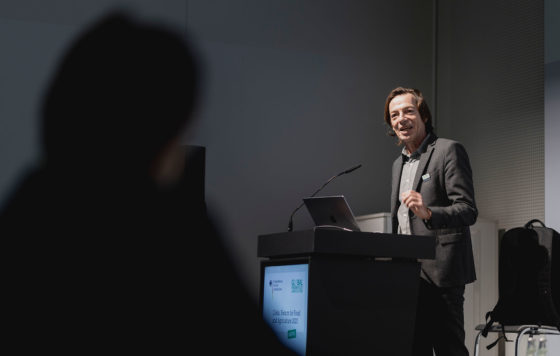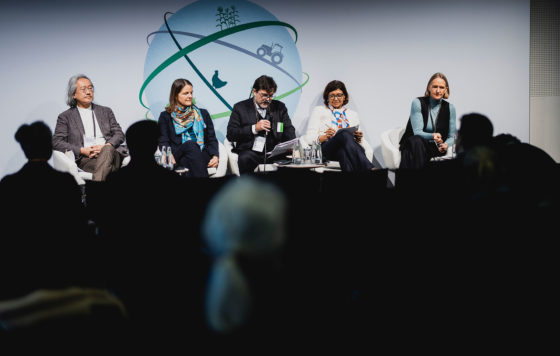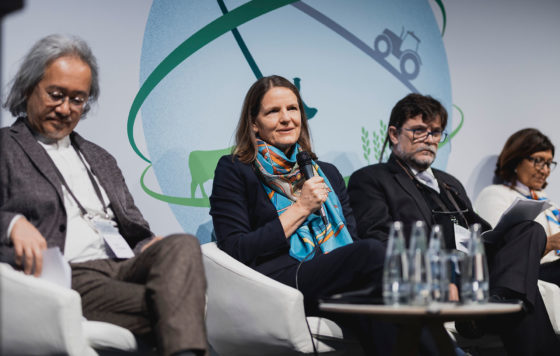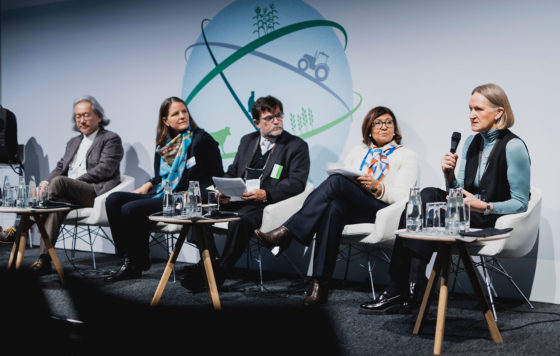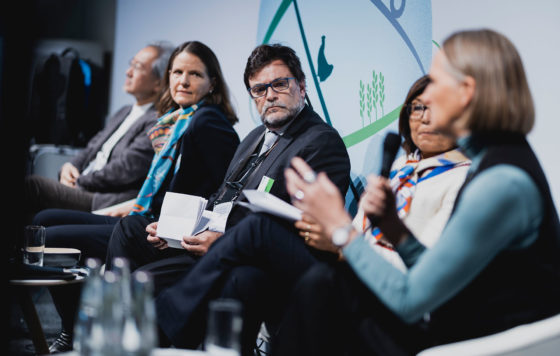Is the Codex system fit for the future?
Food and Agriculture Organization of the United Nations (FAO)
World Health Organization (WHO)
Time: Friday, 20. January 2023, 09:30 a.m. – 11:00 a.m.
Room: M8
Languages: English, German
Summary:
The panel, composed of Michel Leporati Neron, Director CERES, Chile; Kazuaki Miyagishima, visiting professor Nagasaki University; Jenny Reid, Councillor Primary Industries New Zealand Embassy Rome; Maria Helena Semedo, DDG FAO; and Christiane Wolff, Head of SPS Section WTO addressed a series of questions around the challenges faced by the Codex Alimentarius Commission (Codex) moving forward. The panellists reflected on Codex work to date and their own experiences, also highlighting issues that need to be considered for the future. Some of the concluding points of the discussions were as follows:
- The need to continue to produce food standards that are clear in their objective and are useful for Members.
- To acknowledge and engage in the debate on related issues but not to lose focus on core business.
- To build the reputation of Codex so that it is synonymous with safe and healthy foods everywhere.
- To be agile, flexible and continue to respond to the need for consumer protection as well as global challenges.
- That Member Countries view Codex committees in such high esteem that they send their best scientists to take part in the work and strong delegates to the Commission to engage so that Codex is seen as a place/area that people aspire to be working in.
- To continue to reflect (especially from the SDG and sustainability perspectives), recognizing the increasing demand for standards that constitute a whole package for safe and sustainable worlds. Food safety is important, but it’s just one of the pillars and there needs to be a way to connect with those other pillars.
Panel Guests
He is a specialist in food safety matters currently working as Director of CERES BCA, biosafety and food quality services, and as President of the Chilean Food Protection Corporation. He works as an international consultant for a range of international and UN organizations and for various governments and companies in Latin America.
Michel previously worked in the Chilean Agency for Food Quality and led Codex work chairing the FAO/WHO Coordinating Committee for Latin America and the Caribbean.
Michel was an adviser in the cabinet of the Ministers of Agriculture. He has held leadership and teaching positions at several universities and coordinated international cooperation projects.
He is currently Visiting Professor at the Nagasaki University, advisor to Aeon Co. Ltd. and a member of the Steering Committee of the Global Food Safety Initiaitve.
Her previous roles include leading the Food Science and Risk Assessment teams responsible for providing scientific and technical advice to the Minister and to underpin domestic and international food regulations.
Jenny has led the New Zealand delegation to two Codex committees and chaired the global work on the review of the Codex standard for Follow up Formula.
Honors and awards
November 2019:
• Receives the Crans Montana Forum Prix de la Fondation
December 2018:
• The Government of Brazil bestows the honorific Order of Rio Branco
• The Universidade Aberta in Lisbon confers the Honoris Causa doctorate for her work in global sustainable development
March 2018:
• Named “Woman of the Year” at the commemoration of the 2018 Women Diplomats Day in Portugal
May 2008:
• Receives the Order of Niger for her distinguished service to the field of agriculture
Moderation
Tom Heilandt has been the Secretary of the FAO/WHO Codex Alimentarius Commission since 2014. He joined the Secretariat in 2005 as Senior Officer responsible for communication. From 1994-2005 he worked in the United Nations Economic Commission for Europe (UNECE) in Geneva first in the secretariat for international recommendations and agreements on the transport of dangerous goods by road and later as Secretary of the Working Party on Agricultural Quality Standards. Previous private sector work experiences include chemical industry and enterprise consulting. Tom is a German citizen and holds degrees in Mathematics and Computer Science from the University of Düsseldorf.



